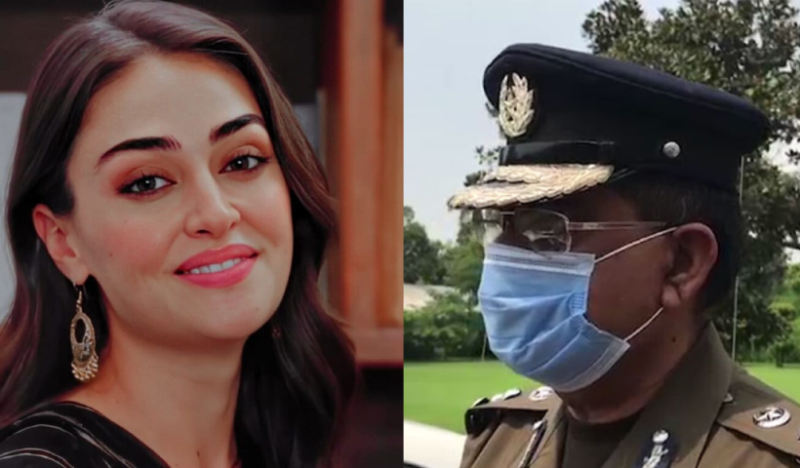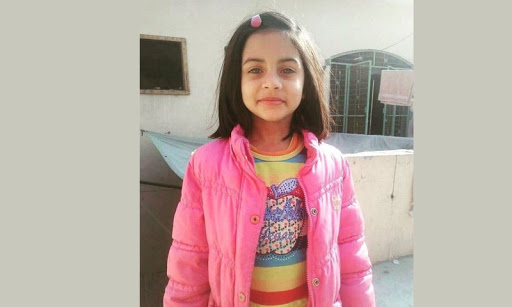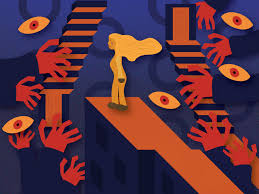
Abid Malhi, rapist of the horrific Motorway incident from about a month ago, was arrested on Monday last week – triggering a wave of celebratory rage from seemingly ordinary people on social media calling for a) his castration, b) an elaborate public hanging, c) instigation of a censorship campaign in the media to eliminate ‘indecency’, and the list went on. What is important, it is claimed, is for him to be made an example of – in order to set a precedent and 'instill fear' in the hearts of potential sex offenders.
The people’s joy, to be fair, is understandable, despite the fact that the arrest came 33 days late. Its the rage – the bloodlust – that is somewhat baffling. Who are these individuals and why are they exhibiting signs of deep alienation and despair? And what are our political leaders doing about it? The short answer is, of course, not much. This is because in Pakistan, politics has been reduced to the realm of symbols and empty rhetoric and petty one-upmanship contests of a cultural, moral, aesthetic nature taking place among elites who are either blissfully unaware of or simply indifferent to the average person’s experiences. In some ways, it doesn't matter that Abid has been captured. After all, he's just another face among the countless others involved in incidents of gender violence – at least 37 just in September this year, documented by a Twitter user Javeria Waseem here. And these are merely the visible ones, constituting tip of a colossal iceberg. One wonders, where are all the other perpetrators besides Abid? Will we ever find out? What about incidents that escape the public eye – not to mention the pervasive epidemic of marital sexual assault that isn’t even considered a legitimate problem in Pakistan? Our rage shouldn't be directed at fleeting individual identities (that are ultimately the product of their environments and the system at large), it should be directed at the abysmal state of our institutions.
In some ways, it doesn't matter that Abid has been captured. After all, he's just another face among the countless others involved in incidents of gender violence – at least 37 just in September this year, documented by a Twitter user Javeria Waseem here. And these are merely the visible ones, constituting tip of a colossal iceberg. One wonders, where are all the other perpetrators besides Abid? Will we ever find out? What about incidents that escape the public eye – not to mention the pervasive epidemic of marital sexual assault that isn’t even considered a legitimate problem in Pakistan? Our rage shouldn't be directed at fleeting individual identities (that are ultimately the product of their environments and the system at large), it should be directed at the abysmal state of our institutions.
 Our police force should be vigilant enough to prevent incident like this to happen in the first place, and immediately hold the leadership personnel accountable in case such tragedy occurs. Our schools should be accessible to all and incorporate quality sex education from a young age in a well-thought out ‘Single National Curriculum’. Our social protection programs should ideally function as a preventive measure minimizing the level of general helplessness and destitution among ordinary people and prevent children from having to work under exploitative conditions just to support their poor households. People are less likely to harm others, if they have sense of true autonomy and aren’t at the mercy of socioeconomic forces with no control over. Rape is, ultimately, about power and those having none of it in the political and economic spheres will inevitably express it, assert it in physical form.
Our police force should be vigilant enough to prevent incident like this to happen in the first place, and immediately hold the leadership personnel accountable in case such tragedy occurs. Our schools should be accessible to all and incorporate quality sex education from a young age in a well-thought out ‘Single National Curriculum’. Our social protection programs should ideally function as a preventive measure minimizing the level of general helplessness and destitution among ordinary people and prevent children from having to work under exploitative conditions just to support their poor households. People are less likely to harm others, if they have sense of true autonomy and aren’t at the mercy of socioeconomic forces with no control over. Rape is, ultimately, about power and those having none of it in the political and economic spheres will inevitably express it, assert it in physical form.
Discussions about censorship don’t make much sense in a hyper-global, digital world as there is simply no way to block content in a selective manner on the internet. Thanks to VPNs that any kind of [forbidden, blocked] content can be accessed at will by anyone with a smartphone and access to the internet. Here, I’ll point out the fact that Pakistan ranks at the top of the list for global porn searches. It is a deep societal problem particularly for a country whose leadership loves periodically bragging about its morally/spiritually pure character relative to the West – a petty meaningless jab in the purely aesthetic realm which has nothing to do with material conditions.
Again, the solution to these issues isn’t suppression, but radical institutional reforms which are always far from easy, and can only be truly pursued over the long haul. It involves technical expertise that is informed by deep comprehensive research, difficult hierarchical decision-making, and by challenging entrenched power structures and questioning fundamental values. Perhaps, most importantly, it involves having the political will to start from scratch in a manner that isn’t unhinged from ordinary people’s reality.
Public displays of barbarism are an escape route for corrupt political leaders in situations like these – a convenient 'theatrical performance', if you will, to opportunistically mould a losing position as to enhance voter base. The idea is a fairly straightforward one: “Here, look at this – the gallows, the noose, the man. He’s dead, see? Justice. For you, the people – my people. Remember who did this the next time you’re at the ballot box.” And voila, a pathetic abracadabra gesture to make an utter mockery out of the ordinary citizen while buying some time as they resume their politics of duct-taping. On a more personal note, I've always perceived death penalty to be the lax option as far as punishments are concerned: a few seconds of physical pain for the perpetrator before his lights go out. A mere drop in the ocean compared to the anguish of his victim compelled to endless suffering of various kinds – physical, emotional, spiritual, social, psychological – for as long as she lives.
And with the Pakistan ‘Democratic’ Movement underway, these issues have been swept under the rug, out of sight and out of mind, as if they never even happened. Meanwhile, visuals from the marches of the dismal Machiavellian politicians backed by corporate media elites are forced onto us all day, and we are expected to pick a ‘side’ – a blatantly false dichotomy.
The real choice isn’t between the Establishment and mainstream political parties masquerading as representatives of the people. Make no mistake, its between the 1% and the 99%; the beneficiaries of a neoliberal global order vis a vis the alienated who have had their basic human dignities snatched. This can’t be a struggle to exclusively alter cultural norms, which can only evolve in organic ways over the course of centuries, millennia even. It has to be a strictly political and economic one with a clear ideology that galvanizes the people. The next era in Pakistan’s history will be defined by that very struggle provided that I, you, all of us collectively, actively engage.
The people’s joy, to be fair, is understandable, despite the fact that the arrest came 33 days late. Its the rage – the bloodlust – that is somewhat baffling. Who are these individuals and why are they exhibiting signs of deep alienation and despair? And what are our political leaders doing about it? The short answer is, of course, not much. This is because in Pakistan, politics has been reduced to the realm of symbols and empty rhetoric and petty one-upmanship contests of a cultural, moral, aesthetic nature taking place among elites who are either blissfully unaware of or simply indifferent to the average person’s experiences.
 In some ways, it doesn't matter that Abid has been captured. After all, he's just another face among the countless others involved in incidents of gender violence – at least 37 just in September this year, documented by a Twitter user Javeria Waseem here. And these are merely the visible ones, constituting tip of a colossal iceberg. One wonders, where are all the other perpetrators besides Abid? Will we ever find out? What about incidents that escape the public eye – not to mention the pervasive epidemic of marital sexual assault that isn’t even considered a legitimate problem in Pakistan? Our rage shouldn't be directed at fleeting individual identities (that are ultimately the product of their environments and the system at large), it should be directed at the abysmal state of our institutions.
In some ways, it doesn't matter that Abid has been captured. After all, he's just another face among the countless others involved in incidents of gender violence – at least 37 just in September this year, documented by a Twitter user Javeria Waseem here. And these are merely the visible ones, constituting tip of a colossal iceberg. One wonders, where are all the other perpetrators besides Abid? Will we ever find out? What about incidents that escape the public eye – not to mention the pervasive epidemic of marital sexual assault that isn’t even considered a legitimate problem in Pakistan? Our rage shouldn't be directed at fleeting individual identities (that are ultimately the product of their environments and the system at large), it should be directed at the abysmal state of our institutions. Our police force should be vigilant enough to prevent incident like this to happen in the first place, and immediately hold the leadership personnel accountable in case such tragedy occurs. Our schools should be accessible to all and incorporate quality sex education from a young age in a well-thought out ‘Single National Curriculum’. Our social protection programs should ideally function as a preventive measure minimizing the level of general helplessness and destitution among ordinary people and prevent children from having to work under exploitative conditions just to support their poor households. People are less likely to harm others, if they have sense of true autonomy and aren’t at the mercy of socioeconomic forces with no control over. Rape is, ultimately, about power and those having none of it in the political and economic spheres will inevitably express it, assert it in physical form.
Our police force should be vigilant enough to prevent incident like this to happen in the first place, and immediately hold the leadership personnel accountable in case such tragedy occurs. Our schools should be accessible to all and incorporate quality sex education from a young age in a well-thought out ‘Single National Curriculum’. Our social protection programs should ideally function as a preventive measure minimizing the level of general helplessness and destitution among ordinary people and prevent children from having to work under exploitative conditions just to support their poor households. People are less likely to harm others, if they have sense of true autonomy and aren’t at the mercy of socioeconomic forces with no control over. Rape is, ultimately, about power and those having none of it in the political and economic spheres will inevitably express it, assert it in physical form.Discussions about censorship don’t make much sense in a hyper-global, digital world as there is simply no way to block content in a selective manner on the internet. Thanks to VPNs that any kind of [forbidden, blocked] content can be accessed at will by anyone with a smartphone and access to the internet. Here, I’ll point out the fact that Pakistan ranks at the top of the list for global porn searches. It is a deep societal problem particularly for a country whose leadership loves periodically bragging about its morally/spiritually pure character relative to the West – a petty meaningless jab in the purely aesthetic realm which has nothing to do with material conditions.
Again, the solution to these issues isn’t suppression, but radical institutional reforms which are always far from easy, and can only be truly pursued over the long haul. It involves technical expertise that is informed by deep comprehensive research, difficult hierarchical decision-making, and by challenging entrenched power structures and questioning fundamental values. Perhaps, most importantly, it involves having the political will to start from scratch in a manner that isn’t unhinged from ordinary people’s reality.
Public displays of barbarism are an escape route for corrupt political leaders in situations like these – a convenient 'theatrical performance', if you will, to opportunistically mould a losing position as to enhance voter base. The idea is a fairly straightforward one: “Here, look at this – the gallows, the noose, the man. He’s dead, see? Justice. For you, the people – my people. Remember who did this the next time you’re at the ballot box.” And voila, a pathetic abracadabra gesture to make an utter mockery out of the ordinary citizen while buying some time as they resume their politics of duct-taping. On a more personal note, I've always perceived death penalty to be the lax option as far as punishments are concerned: a few seconds of physical pain for the perpetrator before his lights go out. A mere drop in the ocean compared to the anguish of his victim compelled to endless suffering of various kinds – physical, emotional, spiritual, social, psychological – for as long as she lives.
And with the Pakistan ‘Democratic’ Movement underway, these issues have been swept under the rug, out of sight and out of mind, as if they never even happened. Meanwhile, visuals from the marches of the dismal Machiavellian politicians backed by corporate media elites are forced onto us all day, and we are expected to pick a ‘side’ – a blatantly false dichotomy.
The real choice isn’t between the Establishment and mainstream political parties masquerading as representatives of the people. Make no mistake, its between the 1% and the 99%; the beneficiaries of a neoliberal global order vis a vis the alienated who have had their basic human dignities snatched. This can’t be a struggle to exclusively alter cultural norms, which can only evolve in organic ways over the course of centuries, millennia even. It has to be a strictly political and economic one with a clear ideology that galvanizes the people. The next era in Pakistan’s history will be defined by that very struggle provided that I, you, all of us collectively, actively engage.
